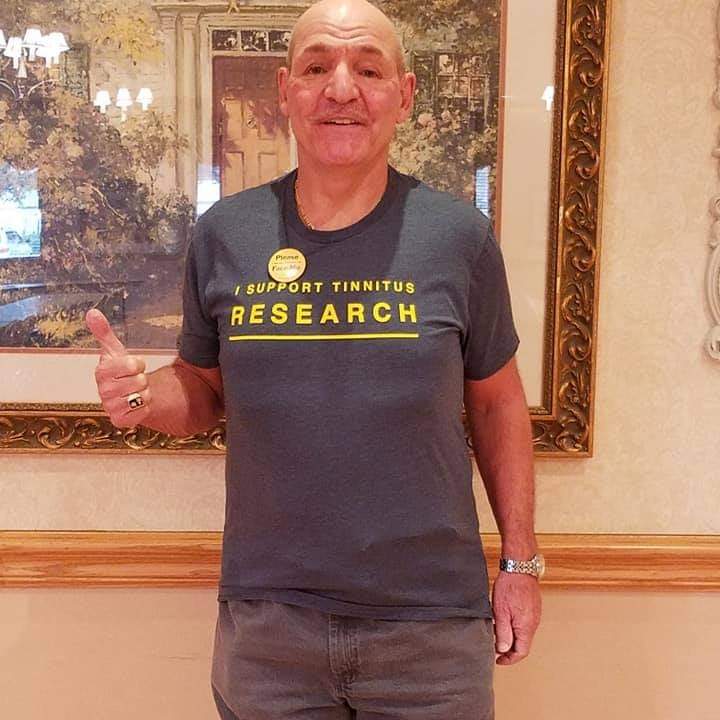Last Updated on September 8, 2021
Sal Gentile wants to be heard. His passion in telling his story is etched in the painful circumstances of his day-to-day life: Sal has tinnitus. The ringing in his ear is constant, much like a pesky gnat that won’t go away, only much louder.
He wants to help others like him who have suffered in silence, hesitant to speak as the noise grows louder. Tinnitus is a common condition, affecting nearly 15 percent of the general public — over 50 million Americans —according to the U.S. Centers for Disease Control. There is no cure. 
At 71, Gentile is proud to be known as “the voice” of others just like him.
“It’s not about me,” he said. “It’s about giving people hope and help.”
The journey starts with giving himself hope.
Actively fit for most of his life, Gentile would often go on long-distance bicycle rides with friends. “There were a lot of times I’d be on the bike and someone would say ‘right turn’ but all I heard was mumbling. I made a left while everyone else would go right. I realized I was having some sort of hearing loss and thought nothing of it.”
But 11 years ago, the morning after his birthday, he woke up with four noises ringing in his head. “Horrible noises. I didn’t get out of bed for three days. I thought I had brain damage. I thought I was going to die.”
After a visit to a general practitioner, he was diagnosed with tinnitus. He had no idea what it was.
“What do you do with it?” he asked the doctor.
“You live with it,” the doctor answered.
“Excuse me?”
“You live with it. You suck it up and move on.”
Annoyed, frustrated and angry, Gentile visited 21 different doctors, medical providers, hearing loss professionals and researchers, all of whom essentially told him the same thing. But he persisted.
He joined the American Tinnitus Association, a nonprofit organization that promotes relief of, helps prevent, and investigates cures for tinnitus. He found an audiology specialist, Chris Spankovich, then at the University of Florida. They spent four hours talking about the condition and discussing ways to disconnect from the noise, including hearing aids, which create “white noise” and help mask the condition.
Gentile’s knowledge has grown exponentially. And he’s evolved from a party of one to an inclusive audience that welcomes anyone seeking relief. He wants them to seek more therapeutic remedies, instead of turning to anti-depressants, as he once did.
He’s become a support group leader for the American Tinnitus Association, conducting meetings via Zoom because of the COVID-19 crisis. Ask him to a group meeting on tinnitus? Gentile will be there
“There are so many people out there who suffer from this condition,” he told Growing Bolder. “People who can’t get out of the house. I don’t like the way they are suffering but I try to instill hope in them.”
A few months shy of 72, Gentile personifies the message in Tom Petty’s classic hit, “I Won’t Back Down.”
He is at the gym every day. He lives at active lifestyle at Latitude Margaritaville, a 55-plus community in Daytona Beach.
“I’ll be 72 in July going on 50,” he said. “In the last third of my life, I am going to make it the best it is. It’s a celebration for me.”
Sal Gentile wants to be heard. Passion? Check. Purpose? Check. The message comes across very clearly.
Looking for help living with tinnitus? Here are some useful links:
To message Sal Gentile personally, you can email him at: [email protected]














